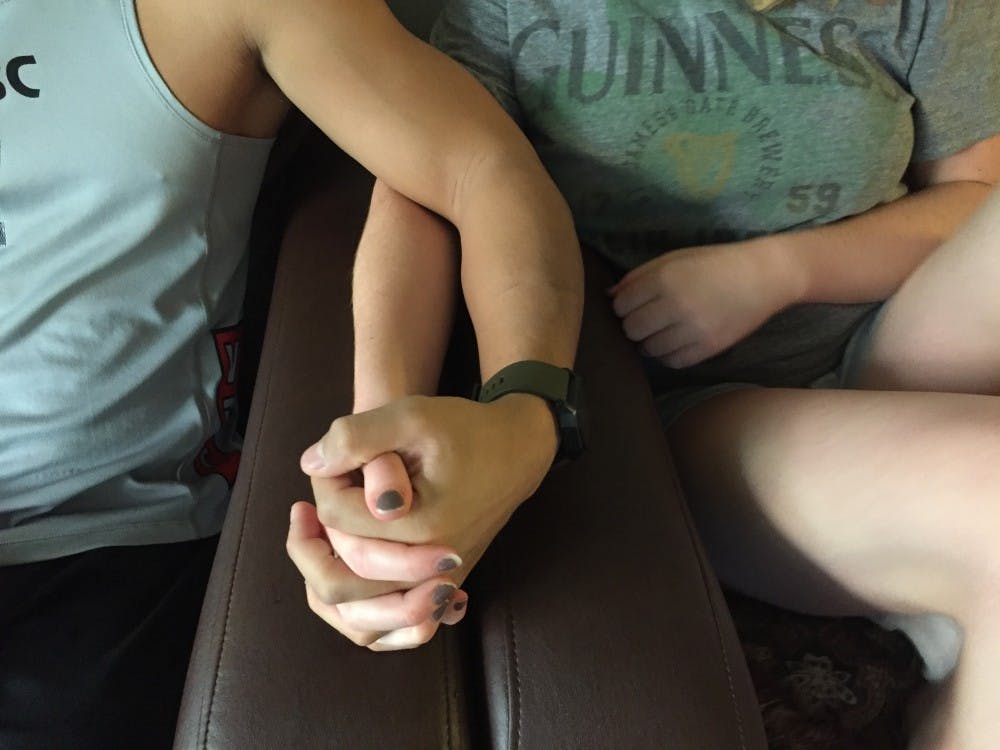Movies, social media and television show idealized romantic relationships depicting people as though they are merely one part of a whole. Although romantic relationships are emotionally beneficial to some, college is not the ideal time to actively seek them, especially because they are no longer valued.
The nature of dating in college has changed in response to the introduction of dating apps such as Tinder. Tinder now has approximately 5 million users, half of them belonging to the college demographic.
Typically, these apps are pegged as a means to foster the hook up culture that has become widespread in colleges nationwide, but many individuals use them to seek long-term partners as well. According to Psychology Today, the majority of college students have only had one sexual partner in the last year. Additionally, research shows that only 20 percent use the app for casual sex, so it is safe to say that a significant number of users are in it for more long-term reasons.
Whether it means satisfying a physical need or emotionally connecting with another person, jumping from partner to partner has become easier then ever.
Not only do these apps foster casual relationships, but they also reduce the legitimacy of committed romantic relationships. In other words, people begin to seek relationships for the wrong reason.
“I think dating apps have changed patterns of dating incredibly,” Thao Ha, Ph.D, assistant research psychology professor at ASU, said. “It is much easier nowadays to meet new potential partners. The downside to this is that college students might be less mindful about their relationship choices."
"So-called sliding relationships are more prevalent, and college students might be less inclined to ask themselves whether their way of dating or their partner is something that they really want.”
College is an adjustment period for college students, especially for those who live in another state. This ought to be the time students explore their newfound independence. Instead, students often try to cope with this detachment by seeking an emotional connection with another person.
“College occurs during a developmental period called emerging adulthood, and part of emerging adulthood is taking on adult roles and seeing whether the are a good fit to that person,” T. Scott Christopher, Ph.D., associate professor of the School of Social and Family Dynamics, said. “Romantic relationships are a way to see what is a good fit and what is not.”
Unfortunately, dating has become less of a way to explore adult roles and has become more a convenience for students. Instead of coping with their own problems, they turn to their partners for support, but relationships don’t last forever, and when they end, these individuals can end up worse off than before.
Although college may not be the right time for everyone to seek a relationship, some people thrive off an emotional connection with another person and are level-headed enough to handle the repercussions. These are the people who use a romantic relationship to supplement their happiness, rather than relying on the relationship to overcome obstacles.
With the ever-changing nature of romantic relationships and the casual approach with which college students approach them, it is important that they recognize their motivation in seeking them. If students continue to date for the wrong reasons, they will continue to jump from partner to partner without ever establishing their own identity as an adult.
Reach the columnist at ghirneis@asu.edu or follow @ghirneise2 on Twitter.
Editor’s note: The opinions presented in this column are the author’s and do not imply any endorsement from The State Press or its editors.
Want to join the conversation? Send an email to opiniondesk.statepress@gmail.com. Keep letters under 300 words and be sure to include your university affiliation. Anonymity will not be granted.
Like The State Press on Facebook and follow @statepress on Twitter.




